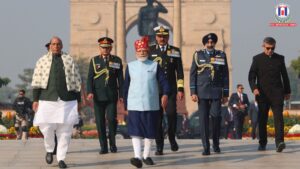
China has strongly opposed the United States’ recent decision to revoke the student visas of Chinese nationals, accusing Washington of acting out of political bias and undermining its own global image. The reaction comes after U.S. Secretary of State Marco Rubio announced that the U.S. would begin canceling visas of Chinese students, particularly those affiliated with the Chinese Communist Party or pursuing studies in sensitive academic fields.
In a sharp response, Chinese Ministry of Foreign Affairs spokesperson Lin Jian called the decision “unjustified” and “disruptive” to academic and cultural exchanges between the two nations. Posting on social media platform X (formerly Twitter), Lin stated, “The US decision to revoke Chinese student visas is fully unjustified. Citing ideology and national security as a pretext, the move seriously hurts the lawful rights and interests of international students from China and disrupts people-to-people exchanges between the two countries.”
China has lodged a formal protest against the move, which it views as part of a broader U.S. strategy to contain Chinese influence globally. Lin Jian also criticized the rationale provided by the United States, arguing that the revocation of student visas based on ideological grounds is discriminatory and politically driven.
“This politically motivated and discriminatory move exposes the hypocrisy behind the US’s claims of freedom and openness. It will further damage the image and reputation of the US itself,” Lin remarked.
The decision to revoke visas appears to be a revival of Trump-era policies targeting Chinese students and researchers over alleged concerns of espionage and technology theft. While the Biden administration had softened certain restrictions, the new directive under Secretary Rubio signals a hardening stance on academic ties with China amid rising geopolitical tensions.
In his post on X, Rubio defended the move as a national security measure. “The US will begin revoking visas of Chinese students, including those with connections to the Chinese Communist Party or studying in critical fields,” he wrote, without elaborating on the specific areas considered sensitive.
The controversy has sparked debate in academic and diplomatic circles, with critics warning that such policies risk alienating talented scholars and undermining scientific collaboration. Over the past decade, Chinese students have constituted one of the largest international student populations in the U.S., contributing significantly to American universities and research institutions.



















No Comments: